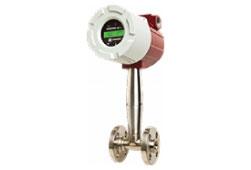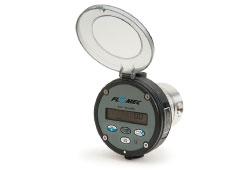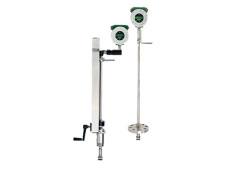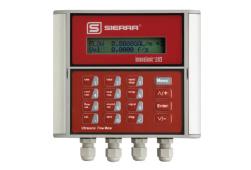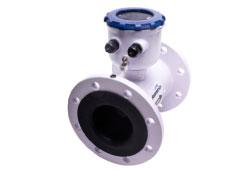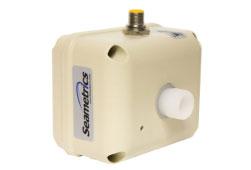Flow meters are used to measure the mass flow rate of a liquid or gas in a pipe or other container. A Flow Meter is most commonly used in industrial and commercial applications to measure the flow of water, oil, steam, or other liquids and gases. They can also be used to measure the flow of air in ventilation systems or to measure the flow of wastewater in sewage systems.
They are used in a range of industries, such as oil and gas, water and wastewater treatment, chemical, food and beverage, production, and HVAC.
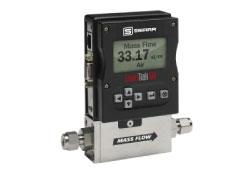
Thermal Mass Flow Meters & Controllers
Liquid | Gas | Steam
contact us for information about our flow measurement range, pricing, and availability from leading suppliers: Sierra Instruments, Seametrics, Flomec, and more.
A Flow Meter will measure the flow rate or quantity of liquids, gases, or steam that is moving through a pipe. There are many names associated with devices used to measure liquids and gases including flow indicators, liquid meters, and flow gauges.
Procon Instrument Technology can supply and support the following types of flowmeters from leading suppliers:
- Mass Flow Meters and Mass Flow Controllers for liquid, gas, and steam flow measurement
- Doppler / Transit Time Ultrasonic Flow Meter for liquid measurement
- Turbine, Paddle Wheel, and Positive Displacement Flow Meters
- Magnetic Flow Meters
- Vortex Flow Meters
- Agricultural and Industrial Water Meters
What is the difference between Mass Flow Meters and Velocity Flow Meters?
Mass flow meters measure the mass of a fluid passing through a pipe, while a velocity flow meter will measure the velocity of a fluid passing through a pipe. A Mass flow meter is more accurate than a velocity flow meter since they measure mass and not just velocity. A Mass flow meter is often used in industrial applications, such as measuring the flow of fluids in chemical processes, while velocity flow meters are more commonly used in water systems, such as measuring the flow of water in irrigation systems.
The output signal of a Mass Flow Meter is directly related to the mass passing through the meter. Thermal and Coriolis flow meters fall into this category.
The output signal of a Velocity Flow Meter is directly related to the velocity passing through the meter. Examples of Velocity Flow Meters are:
- Electromagnetic
- Ultrasonic
- Turbine, Propeller, and Paddle Wheel
- Vortex Shedding
- Target
- Variable Area and Rotameter
- Orifice Plate, Open Channel, Flow Nozzle, Laminar, Venturi, and Pitot Tube
Things to consider when choosing a Flow Meter for your application
Selecting the proper technology for your application requires writing a flow specification that covers the use of the meter. There are usually trade-offs with each meter type, so knowing the critical specifications will be important.
Things you should factor in when selecting the right flow meter for your application:
- Fluid to be measured: What is the Gas or Liquid that is being measured?
- Flow Rate: Consider the maximum and minimum flow rates of the flow meter you are looking at to ensure it is suited to your application.
- Accuracy: Make sure the flow meters you are considering are accurate enough for your application.
- Cost: Consider the cost of the flow meter and any associated installation or maintenance costs.
- Installation: Consider the installation requirements of the flow meter and make sure you have the necessary space and resources to install it.
- Environment: Make sure the flow meter is suitable for the environment it will be installed in, such as if it can handle high temperatures, vibration, or corrosive liquids.
- Maintenance: Consider the maintenance requirements of the flow meter and if it will require regular calibration or cleaning.
- Output: What type of output signal or readout is required
- Pressure: What is the maximum pressure at the location and what pressure drop is allowable?


